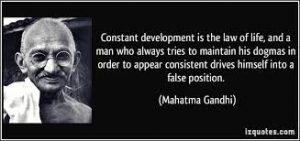Career in Law
 Competent lawyers are the courtroom heroes. Law is an integral part of nearly every area of our life – from the environment, trade, education, medicines, entertainment, marriage, childbirth, sports to death. When things go wrong in society we first think of lawyers. Be it a divorce, stealing, bribery, bankruptcy, IP theft, corporate slip-ups; when fundamentals and practicalities begin to crumble, lawyers swoop in like heroes to protect their clients against the offenders. Taking help of lawyer is a simple instantaneous action, born out of necessity. People call lawyers not because they wantto, but because itnecessitates to.
Competent lawyers are the courtroom heroes. Law is an integral part of nearly every area of our life – from the environment, trade, education, medicines, entertainment, marriage, childbirth, sports to death. When things go wrong in society we first think of lawyers. Be it a divorce, stealing, bribery, bankruptcy, IP theft, corporate slip-ups; when fundamentals and practicalities begin to crumble, lawyers swoop in like heroes to protect their clients against the offenders. Taking help of lawyer is a simple instantaneous action, born out of necessity. People call lawyers not because they wantto, but because itnecessitates to.
Can a lawyers’ role be narrowly defined as an antidote to conflict? Are they required only to avoid or manage disputes? The common most notion of a lawyer is – the one who is skilled at finding ‘loopholes’ in the system and help his/her client escape from a sticky situation. But this is our narrow-mindedness if we define their role in such tapered frame. And, we cannot deny that to one up the law one must know the law.
Law is the way society regulates its behavior. It creates rules of conduct that are widely understood and gives us parameters for resolving disputes and defining acceptable codes of conduct. Our centralized, state, and local laws regulate everything from how we do business with each other to how we behave in public places, our duties and responsibilities in society, how we keep our surrounding to where we can park our cars. Because law is considered a technical profession not easily comprehended by the untrained, individuals and companies hire professionals-lawyers-to help them realize it and conduct the procedures it defines. The role of lawyers cannot be limited or underrated. Lawyers have enormous power, which they use daily to effect change for their clients. Without law and order we cannot live peacefully in this world. In some or the other way we permanently depend on lawyers.
 Law has been one of the popular career choices for youngsters. Those who come from families of lawyers usually opt to study law. Anyone can choose to study law as long as one has the passion for it. There are many areas of specialization in law these days. Maritime Law, Cyber Law, Business Law, Civil Rights Law, Entertainment Law, Environment Law, Immigration Law, Health Law, Intellectual Property Law, International Law, Labor Law, Taxation Law and many more. I listed just few of them. Today for every action and every activity we find a specialized lawyer. Traditionally, students could specialize in either civil or criminal laws.
Law has been one of the popular career choices for youngsters. Those who come from families of lawyers usually opt to study law. Anyone can choose to study law as long as one has the passion for it. There are many areas of specialization in law these days. Maritime Law, Cyber Law, Business Law, Civil Rights Law, Entertainment Law, Environment Law, Immigration Law, Health Law, Intellectual Property Law, International Law, Labor Law, Taxation Law and many more. I listed just few of them. Today for every action and every activity we find a specialized lawyer. Traditionally, students could specialize in either civil or criminal laws.
 People who enter this demanding and comprehensive profession do so for many reasons. It is a great paying career and it is a challenging career which requires lot of research and people skills. If you love it make a career in it. To be precise, lawyers can have a broad range of responsibilities depending on the specific area of law they practice. But if you think being a lawyer mainly involves making speeches and grilling witnesses in a courtroom, think again. Even trial lawyers-those who specialize in courtroom litigation spend surprisingly little time before a judge or jury. For every hour in the courtroom, many more are spent doing research, conducting interviews, or writing documents in preparation for proceedings. Many lawyers, in fact, never set foot in court. They work in the back office.
People who enter this demanding and comprehensive profession do so for many reasons. It is a great paying career and it is a challenging career which requires lot of research and people skills. If you love it make a career in it. To be precise, lawyers can have a broad range of responsibilities depending on the specific area of law they practice. But if you think being a lawyer mainly involves making speeches and grilling witnesses in a courtroom, think again. Even trial lawyers-those who specialize in courtroom litigation spend surprisingly little time before a judge or jury. For every hour in the courtroom, many more are spent doing research, conducting interviews, or writing documents in preparation for proceedings. Many lawyers, in fact, never set foot in court. They work in the back office.
In broad terms, lawyers apply their interpretation of the law (the codified rules of their society) to advise their employer or client on completing transactions in compliance with the law or resolving disputes based on current understanding of the law. At its most basic level, a lawyer’s role is that of a supporter and adviser. Attorneys use specialized knowledge to research and interpret the intent of the law and apply it to whatever circumstances their clients face. It’s an imperfect practice, as the interpretations of the law may vary significantly based on the circumstances of the situation.
 The legal profession can be divided into two major categories: litigation and transactions. Litigation, which concerns both civil and criminal law, is the process of arguing a dispute between two parties. Transactions relate to business and personal matters that usually do not require courtroom argumentation. For example, a lawyer may counsel a client in the transactions of preparing a will, contract, or lease; to help secure venture capital for a new company; or to prepare a patent for a new technology. However, if the will is contested or if the venture capitalists sue the business owner for fraud, that would then require an attorney with litigation skill.
The legal profession can be divided into two major categories: litigation and transactions. Litigation, which concerns both civil and criminal law, is the process of arguing a dispute between two parties. Transactions relate to business and personal matters that usually do not require courtroom argumentation. For example, a lawyer may counsel a client in the transactions of preparing a will, contract, or lease; to help secure venture capital for a new company; or to prepare a patent for a new technology. However, if the will is contested or if the venture capitalists sue the business owner for fraud, that would then require an attorney with litigation skill.
Depending on the type of law they practice, lawyers will spend their time on paperwork; researching, preparing for, or participating in trials and advising clients. They spend hours in law libraries, online databases, and case studies for researching legal precedents. They prepare contracts, to the point note, and other documents, assembling boilerplate paragraphs (it is the sections of code that have to be included in many places with little or no alteration) or writing from scratch. They need a sharp mind, sharp focus and razor-sharp communication skills. Humor and wit is an added advantage as it can lighten the courtroom atmosphere.
 They plan and conduct depositions or interviews with witnesses. In complicated cases, these can generate thousands of pages of testimony-all of which have to be read, analyzed, and refined into usable information. They present their evidence-the information they’ve gathered about a case and about the laws relevant to a case-in a court of law, arguing before a judge and/or jury. Alternatively, they may present their research findings to clients, advising them on business or other issues.
They plan and conduct depositions or interviews with witnesses. In complicated cases, these can generate thousands of pages of testimony-all of which have to be read, analyzed, and refined into usable information. They present their evidence-the information they’ve gathered about a case and about the laws relevant to a case-in a court of law, arguing before a judge and/or jury. Alternatively, they may present their research findings to clients, advising them on business or other issues.
If you want to make a splendid career in law, you need to sharpen your analytical ability, attention to detail, logical reasoning, persuasiveness, sound judgment and of course writing ability. I want to list here one of the most essential element for the career and that is of emotional intelligence. They need to empathies with their clients, they need to respect and honor their colleagues, and most important they need to be good listeners. Impassive, unemotional and detached lawyers are never in demand. The market does not want a lawyer who is only half a person. They also need to be tech savvy and good in time management.
If you are interested in making a career in law – you can either do a three-year law course after graduation in any discipline or a 5 years’ course after 12th class. In fact, the 3 years’ course is now giving way to the 5 years’ one which is seen as a better option. In most cases, colleges run the 3 years’ course only for those whose main discipline in graduation is something other than law, or working professionals who want to do an LLB as an additional qualification. The five year course is meant for those who want to take up law as a career – be it as a litigator, or any other kind of legal professional. For the five years course the national law entrance exam, CLAT (Combined Law Admission Test) which basically tests the student’s general English, legal aptitude, general awareness, logical skills, etc needs to be cleared.
The LLB course is regulated by the Bar Council of India which sets rules and regulations regarding legal practice in the country. Any specialization is done at masters, M. Phil or PhD stage. A higher degree helps candidates in their career advancement. It is an honorable career.
 Our nation needs competent and efficient lawyers for enhanced law and order. People like Mahtma Gandhi, Dr. Amedkar, Lokmanya Tilak, Abraham Lincoln, and Nelson Mandela were some great people who had donned the Lawyer’s coat sometimes in life.
Our nation needs competent and efficient lawyers for enhanced law and order. People like Mahtma Gandhi, Dr. Amedkar, Lokmanya Tilak, Abraham Lincoln, and Nelson Mandela were some great people who had donned the Lawyer’s coat sometimes in life.













































